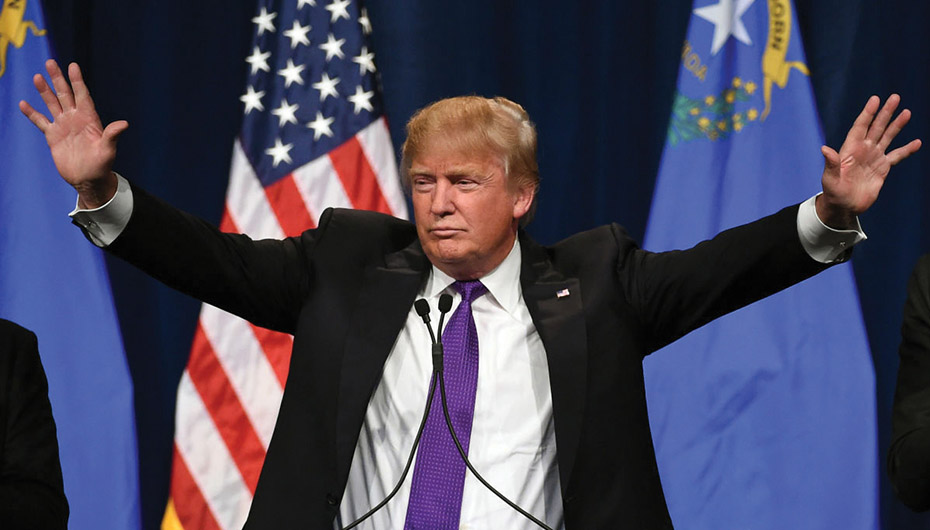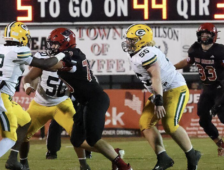Featured image: In an anticlimactic final chapter, Republican presidential candidate Donald J. Trump secured the GOP nomination for the presidency
By Tyler Pruett
tyler@southerntorch.com
INDIANAPOLIS — After months of speculation about third party runs and brokered conventions, the Republican presidential primary was concluded with a clear winner. After Donald J. Trump won an overwhelming victory in Indiana, Senator Ted Cruz declared his bid for the White House over. The next day, former Ohio Gov. John Kasich also concluded his campaign, leaving Trump unchallenged to win the remaining delegates needed to clinch the nomination.
While the success of the Trump campaign has caused deep divisions among the party during the entire primary process, the abrupt conclusion on Tuesday night led to the first signs of unity in months.
As the GOP began their pursuit of a nominee with 17 candidates, the Democratic primary has been largely a two-candidate race. The Republican divisions have led to months of speculation about a contested convention and the potential of a third party candidate arising from the fray. Suddenly, Trump is the only potential nominee on the right, while the left has recently began discussing the subjects of contested conventions and party divisions.
Although the elections saw some of the nastiest personal attacks ever seen in politics, In his victory speech after almost sweeping Indiana, Trump showed civility towards his now former opponents, saying, “the most incredible competitors I’ve ever competed against are right here in the Republican Party.”
He even took the time to compliment his fiercest competitor. The Trump and Cruz campaign had traded some of the harshest personal attacks ever seen in a presidential election. The Texas senator dropped his bid immediately after major news outlets had called Indiana for the New York real estate mogul.
“I don’t know if he likes me, or doesn’t like me, but he is one tough competitor, he is one smart guy, he’s got an amazing future ahead of him,” Trump said of Cruz in his victory speech.
This sudden effort towards unity has caught many by surprise, probably none so more than the Democratic party. Until very recently, many pundits theorized that the race would be decided well before the Republican convention. Only in the last couple of weeks has the topic of a brokered or contested convention been seriously considered by the party that currently controls the White House.
This could mean serious problems for the Democratic Party in November. While the divisions in the GOP crossed all demographics and geographic locations, the Democrats’ divisions are sharper along the lines of key demographics they’ll need for a victory. A good example is younger voters aged 18 - 30. This group was key to Obama’s victory in 2008, but are overwhelmingly siding with Sanders this year. Younger voters are also the least likely to turn out, meaning that a contested convention in which Clinton prevails will alienate a large portion of the party.
While the Democrats are now left still deciding on a nominee, the Republican party can only move forward with one message: Let’s win in November!





